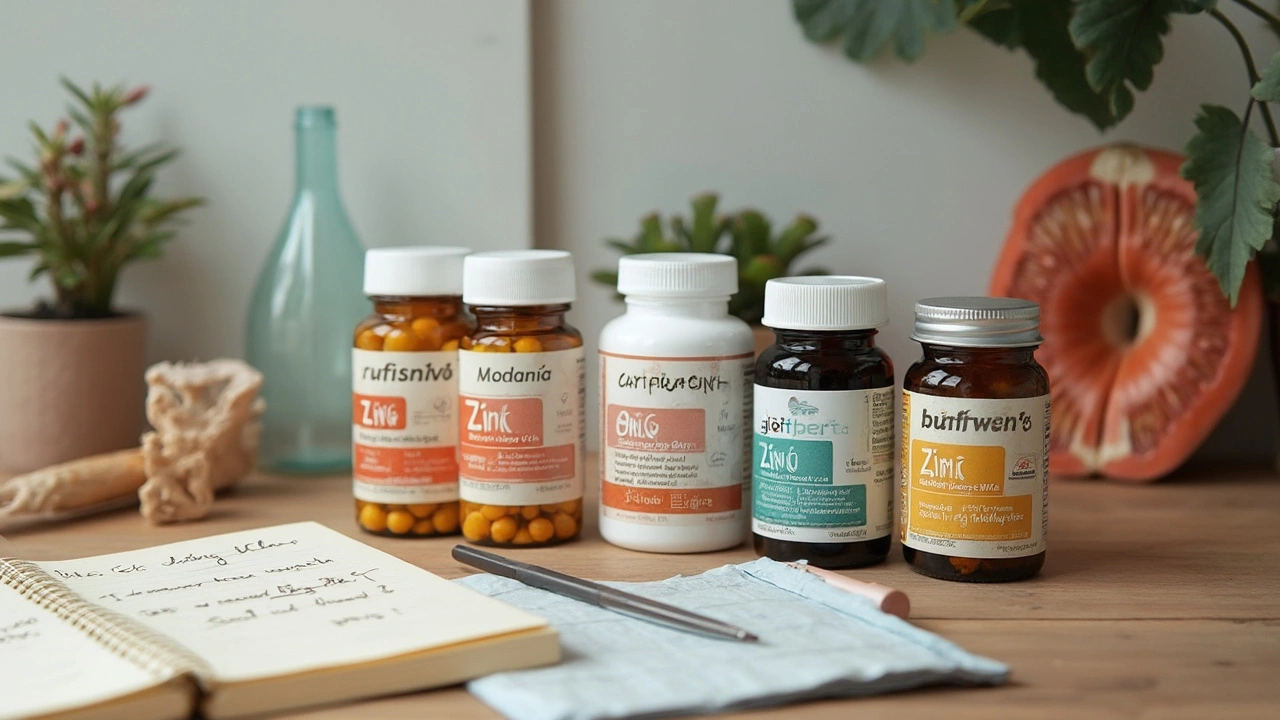Zinc: Essential Facts and Practical Tips for Your Health
Zinc is a mineral your body really needs, but you might not be thinking about it every day. It plays a key role in boosting your immune system, healing wounds, and even supporting your sense of taste and smell. Without enough zinc, you might feel more tired, catch colds more often, or struggle with skin issues.
Many people get enough zinc naturally through foods like meat, shellfish, beans, nuts, and whole grains. But sometimes, certain health conditions or diets can make it harder to get what you need. That's when supplements come into play. They can be useful, but it’s important not to overdo it since too much zinc can cause problems like nausea or headaches.
Why Zinc Matters: More Than Just Immune Support
Zinc isn’t just about fighting off colds. It helps your body make proteins and DNA, supports normal growth, and keeps your skin and eyes healthy. People with wounds or skin problems often see faster healing when they have enough zinc. Athletes and older adults sometimes need extra zinc due to increased demand or absorption issues.
Wondering how much zinc you should take? The recommended daily amount varies by age and gender, but generally, adults need around 8-11 mg per day. If you’re thinking about supplements, it’s useful to chat with a healthcare provider to pick the right dose. Taking zinc alongside meals can help reduce stomach upset, a common side effect.
Choosing Zinc Wisely: Supplement Types and Food Sources
There are different kinds of zinc supplements, like zinc gluconate, zinc sulfate, and zinc acetate. Some may work better or be easier on your stomach than others. If you’re picky about pill size or taste, you might find one type suits you better. Alongside supplements, focusing on zinc-rich foods is a great way to keep your levels steady naturally.
If your diet doesn’t include much meat or seafood, plant-based sources like legumes, nuts, and seeds are helpful. Keep in mind that certain compounds in plants, like phytates, can reduce zinc absorption, so enjoying a varied diet matters. Cooking methods, like soaking or fermenting beans and grains, can boost how much zinc your body absorbs.
In short, zinc is a simple mineral with a big impact on your health. Paying attention to your intake through food and supplements when needed can make a noticeable difference in energy, immunity, and healing. Want to learn how zinc fits into managing specific health conditions or medications? Check out related articles right here on Corey's Pharma Hub for clear, practical advice you can trust.

